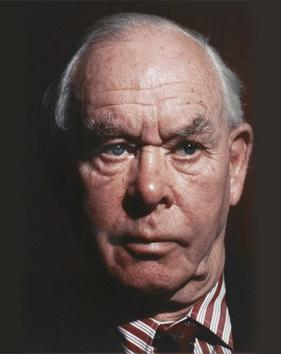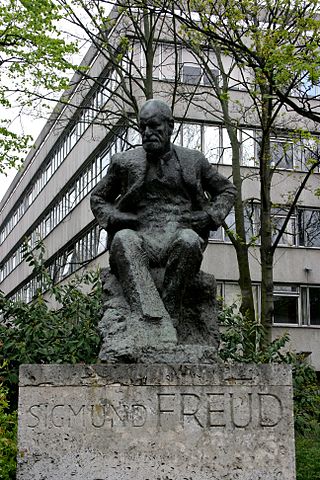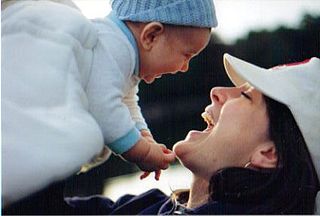Related Research Articles
Psychoanalysis is a set of theories and therapeutic techniques that deal in part with the unconscious mind, and which together form a method of treatment for mental disorders. The discipline was established in the early 1890s by Sigmund Freud, whose work stemmed partly from the clinical work of Josef Breuer and others. Freud developed and refined the theory and practice of psychoanalysis until his death in 1939. In an encyclopedic article, he identified the cornerstones of psychoanalysis as "the assumption that there are unconscious mental processes, the recognition of the theory of repression and resistance, the appreciation of the importance of sexuality and of the Oedipus complex." Freud's colleagues Alfred Adler and Carl Gustav Jung developed offshoots of psychoanalysis which they called individual psychology (Adler) and analytical psychology (Jung), although Freud himself wrote a number of criticisms of them and emphatically denied that they were forms of psychoanalysis. Psychoanalysis was later developed in different directions by neo-Freudian thinkers, such as Erich Fromm, Karen Horney, and Harry Stack Sullivan.

An attachment theory is a psychological and evolutionary theory concerning relationships between humans. The most important tenet is that young children need to develop a relationship, with at least one primary caregiver, for their survival, and to develop healthy social and emotional functioning. The theory was formulated by psychiatrist and psychoanalyst John Bowlby (1907–90).

Edward John Mostyn Bowlby, CBE, FBA, FRCP, FRCPsych was a British psychologist, psychiatrist, and psychoanalyst, notable for his interest in child development and for his pioneering work in attachment theory. A Review of General Psychology survey, published in 2002, ranked Bowlby as the 49th most cited psychologist of the 20th century.

The Tavistock and Portman NHS Foundation Trust is a specialist mental health trust based in north London. The Trust specialises in talking therapies. The education and training department caters for 2,000 students a year from the United Kingdom and abroad. The Trust is based at the Tavistock Centre in Swiss Cottage. The founding organisation was the Tavistock Institute of Medical Psychology founded in 1920 by Hugh Crichton-Miller.
The Columbia University Center for Psychoanalytic Training and Research was founded in 1945. It is part of the Department of Psychiatry of the Columbia University College of Physicians and Surgeons.
Sir Michael Llewellyn Rutter CBE FRS FRCP FRCPsych FMedSci was the first person to be appointed professor of child psychiatry in the United Kingdom. He has been described as the "father of child psychiatry".

Psychodynamics, also known as psychodynamic psychology, in its broadest sense, is an approach to psychology that emphasizes systematic study of the psychological forces underlying human behavior, feelings, and emotions and how they might relate to early experience. It is especially interested in the dynamic relations between conscious motivation and unconscious motivation.

Attachment in children is "a biological instinct in which proximity to an attachment figure is sought when the child senses or perceives threat or discomfort. Attachment behaviour anticipates a response by the attachment figure which will remove threat or discomfort". Attachment also describes the function of availability, which is the degree to which the authoritative figure is responsive to the child's needs and shares communication with them. Childhood attachment can define characteristics that will shape the child's sense of self, their forms of emotion-regulation, and how they carry out relationships with others. Attachment is found in all mammals to some degree, especially primates.
Robert Maxwell Young was an American-born historian of science specialising in the 19th century and particularly Darwinian thought, a philosopher of the biological and human sciences, and a Kleinian psychotherapist.
Anthony Stevens was a British Jungian analyst, psychiatrist and prolific writer of books and articles on psychotherapy, evolutionary psychiatry and the scientific implications of Jung's theory of archetypes.
Richard C. Lindley is a British philosopher.
Robert Douglas Hinshelwood is an English psychiatrist and academic. He is a Professor Emeritus of Psychoanalytic Studies at the University of Essex. He trained as a doctor and psychiatrist. He has taken an interest in the Therapeutic Community movement since 1974, and was founding editor of The International Journal of Therapeutic Communities, having edited, with Nick Manning, Therapeutic Communities: Reflections and Progress.
Cupboard love is a popular learning theory of the 1950s and 1960s based on the research of Sigmund Freud, Anna Freud, Melanie Klein and Mary Ainsworth. Rooted in psychoanalysis, the theory speculates that attachment develops in the early stages of infancy. This process involves the mother satisfying her infant's instinctual needs, exclusively. Cupboard love theorists conclude that during infancy, our primary drive is food which leads to a secondary drive for attachment.

Maternal deprivation is a scientific term summarising the early work of psychiatrist and psychoanalyst John Bowlby on the effects of separating infants and young children from their mother. Although the effect of loss of the mother on the developing child had been considered earlier by Freud and other theorists, Bowlby's work on delinquent and affectionless children and the effects of hospital and institutional care led to his being commissioned to write the World Health Organization's report on the mental health of homeless children in post-war Europe whilst he was head of the Department for Children and Parents at the Tavistock Clinic in London after World War II. The result was the monograph Maternal Care and Mental Health published in 1951, which sets out the maternal deprivation hypothesis.
Attachment-based psychotherapy is a psychoanalytic psychotherapy that is informed by attachment theory.

Peter Fonagy, is a Hungarian-born British psychoanalyst and clinical psychologist. He studied clinical psychology at University College London. He is a Professor of Contemporary Psychoanalysis and Developmental Science Head of the Division of Psychology and Language Sciences at University College London, Chief Executive of the Anna Freud Centre, and a training and supervising analyst in the British Psycho-Analytical Society in child and adult analysis. His clinical interests center on issues of borderline psychopathology, violence, and early attachment relationships. His work attempts to integrate empirical research with psychoanalytic theory. He has published over 500 papers, and 270 chapters and has authored 19 and edited 17 books.

Attachment theory, originating in the work of John Bowlby, is a psychological, evolutionary and ethological theory that provides a descriptive and explanatory framework for understanding interpersonal relationships between human beings.
Jon Mills is a Canadian philosopher, psychoanalyst, and clinical psychologist. His principle theoretical contributions have been in the philosophy of the unconscious, a critique of psychoanalysis, philosophical psychology, value inquiry, and the philosophy of culture. His clinical contributions are in the areas of attachment pathology, trauma, psychosis, and psychic structure.
The Goethe Award for Psychoanalytic and Psychodynamic Scholarship is given annually by the Section on Psychoanalytic and Psychodynamic Psychology of the Canadian Psychological Association. The award is given for the best psychoanalytic book published within the past two years and is juried by a peer review process and awards committee.
Patrick Casement is a British psychoanalyst and author of multiple books and journal articles on contemporary psychoanalytic technique. He has been described as a pioneer in the relational approaches to psychoanalysis and psychotherapy by Andrew Samuels, Professor of Analytical Psychology. His book 'Learning from Our Mistakes' received a Gradiva award for its contribution to psychoanalysis, and his book 'Learning Along the Way: Further Reflections on Psychoanalysis and Psychotherapy' was listed in the top 100 psychotherapy books of all time by BookAuthority.
References
- ↑ Gould, Donald (20 January 1990). "Rewards and punishments: Review of 'The Values of Psychotherapy' by Jeremy Holmes and Richard Lindley". New Scientist . Retrieved 5 April 2022.
- ↑ Fannon, D. (2003). "Jeremy Holmes". The Psychiatric Bulletin (interview). 27 (12). Royal College of Psychiatrists: 480. doi: 10.1192/pb.27.12.480 .
- ↑ Purser, Gülcan (2015). "John Bowlby and Attachment Theory , Second Edition (2014) by Jeremy Holmes , published by Routledge". Attachment: New Directions in Relational Psychoanalysis and Psychotherapy. 9 (2): 219–224.
- ↑ DODSON, H. Attachment in Therapeutic Practice by Jeremy Holmes and Arietta Slade. Published by Sage Publications, London, 2018; 240 pp, [pounds sterling]24.99 paperback. British Journal of Psychotherapy, [s. l.], v. 36, n. 2, p. 344, 2020. doi : 10.1111/bjp.12554 Disponível em: https://search.ebscohost.com/login.aspx?direct=true&db=edsgao&AN=edsgcl.630269613&site=eds-live&scope=site. Acesso em: 5 abr. 2022.
- ↑ "Exploring in Security". routledge.com (publisher's book description).
- ↑ Tollemache, Robert (1991). "The Values of Psychotherapy by Jeremy Holmes and Richard Lindley . Published by Oxford University Press, 1989; 206 pages; £7.90 paperback, 1991". British Journal of Psychotherapy. 8 (1): 110–111.